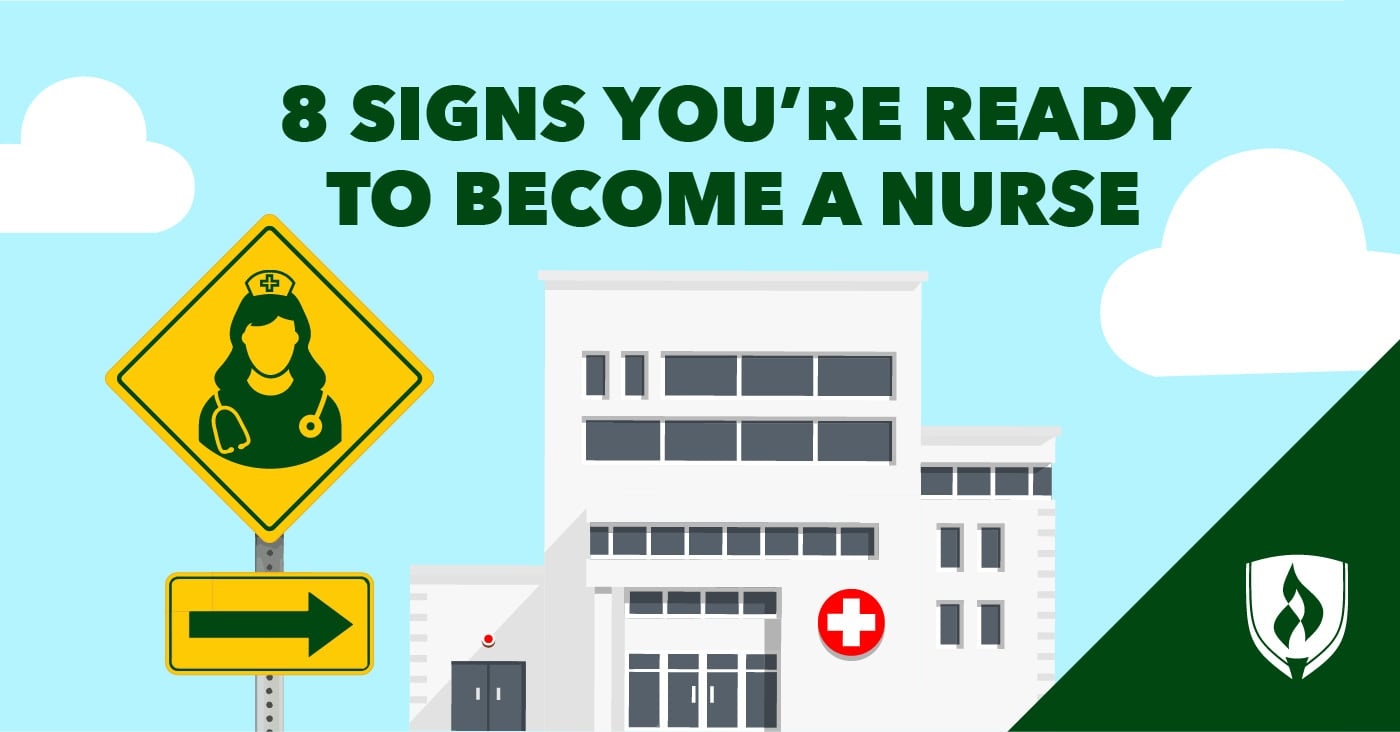
Nursing is an essential role within the healthcare system and in our local and global communities. Taking on this challenging, rewarding, and critical profession is a major decision. Nurses put themselves on the front line of medicine and spend years gaining knowledge to provide the best possible care to their patients. Maybe you have always admired nurses, or maybe a recent experience or the public health crisis has lead you to think more about the possibility of becoming a nurse. But how do you know if this profession is right for you?
While it’ll always be difficult to know for sure until you’ve donned the scrubs and walked a few miles in their supportive shoes, there are certainly some indicators you can evaluate today. To help with that, we spoke with nursing professionals to highlight some of the most important skills and qualities for prospective nurses.
Get Your Nursing School Questions Answered at a Nursing Information Session
Signs a nursing career could be right for you
Are you a natural fit for a nursing career? Consider the following signs.
1. Listening comes easy to you
Maybe it’s coworkers, friends, or family members—but lots of people in your life turn to you in times of crisis. While there are many reasons for this trust, one of the biggest is that you know how to listen to people. The skills involved in being a good listener include having emotional intelligence, spoken and nonverbal communication skills, and knowing how to make people feel comfortable speaking about private parts of their lives.
Nurses who work closely with patients rely on their honesty and ability to be candid about intimate medical information. The best nurses are able to listen intently to what their patients have to say—and also what they’re not saying—in order to help them best. Even nurses who do not work directly with patients need the ability to listen closely and respond appropriately to complex medical information.
2. You’re adaptable in the face of problems
You know there are many ways to solve a problem. It takes creativity and an open mind to put together a plan to overcome the unexpected obstacles in front of you. These qualities make for an effective and persistent nurse.
“By nature of the profession, unexpected problems often occur in nursing,” says former nurse and pain consultant at Pathways Health, Dr. Jeevan Kelon. “Great nurses need to be able to quickly think on their feet and come up with solutions to complex problems.”
3. You’re patient
“There are many situations in which you’ll need patience,” says Dr. Kelon. “That might be when patients or family members have questions, when you’re trying to take a blood sample from a vein that’s tricky to get to, and so on.”
Not everything is going to go smoothly during a shift. Your patients will bring a huge mix of personalities and potentially frustrating tendencies. It’s a fact of life for nurses—so having the ability to let the little things roll off your back while you focus on the task at hand is a big plus.
4. You can handle the unpleasant
So maybe it’s a little obvious, but if going to the doctor makes your skin crawl, or the sight of blood or other not-so-pleasant things leaves you heading for the exit—this might not be the career for you. While some of these things do get easier to handle with experience, a nursing career does take a certain level of comfort with being able to deal with things many would find disgusting. Sores, scrapes, cysts, lacerations, blood, feces—you name it, and a nurse has seen their fair share.
5. You’re a straight shooter
Nursing is among the most trusted professions. According to Gallup polling, nurses have held the top spot for honesty and ethical behavior for 18 years running.1 That’s no fluke. Nurses need the trust of their patients, and patients need to know the unvarnished truth about their health and what needs to be done to maintain it.
This profession comes with challenging conversations and sometimes delivering news to patients that they might not want to hear. If you’re the type to firmly tell it like it is while keeping an even keel emotionally, you may be a great fit for this.
Keep in mind, there’s more to this than patient interactions. Integrity means you do as you say you’ll do and acknowledge when you’ve failed to live up to it—and that’s essential for any team of healthcare providers.
6. You are comfortable talking to all kinds of people
Nursing requires a high level of medical, scientific, and technological knowledge, but it is also a profession that works closely with other people. As a nurse, you may work with patients as well as many other healthcare professionals including doctors, nursing assistants, physical therapist, psychologists, and more. Nurses need to feel comfortable communicating effectively with all sorts of individuals.
Beyond the team of healthcare professionals you’ll work with, nurses are also caring for people from all walks of life. The people where you live need healthcare and compassionate treatment—no matter their background. That makes cultural fluency and second-language skills a big advantage for nursing professionals.
7. You pay attention to details
“Having attention to detail is critical,” says Thea Stadden, RN and founder of Nurses of Tomorrow. “This makes sure you’re giving the right amounts of medicine to patients and at the correct times.”
It’s easy to see why this is so important—mistakes with medication or other treatments can lead to serious harm. Nurses need to keep a sharp focus as they work with multiple patients. During busy times, you may feel rushed to keep up with patient needs. Your best approach in these situations is to keep your head and meticulously tend to patients.
“A good nurse needs to stay on top of details and double-check all work,” Stadden says.
8. You want to make a difference
Most people can remember a time when a nurse made a difference in their lives. Whether that was during labor, your elementary school nurse when you got sick during gym class, or a caring individual who provided healthcare to a loved one in a key moment. The biggest sign that you are ready to become a nurse is that you are ready to make a difference in the lives of other people.
“It’s true that as a nurse you can make good money. But you need to know that as a nurse, it’s not about the money. It’s about caring and loving people who cannot take care of themselves or who need someone to help them with daily activities that they can no longer do,” says Kescia Bresil-Chery, an RN at Connect RN. “You become a nurse because you love people, you want them to feel good emotionally and physically, and you want to provide the highest quality care to patients.”
Bresil-Chery says that while it’s true that a nursing career can provide solid earning potential, she warns that a good nurse’s motivation shouldn’t be found solely in their pocketbook.
“Become a nurse because you love people and want to help them, not because you want the money. If that’s the only reason you’re in it, you’ll come to regret your career choice.”
Are you destined to become a nurse?
If these signs resonated with you, it might be time to take the next step on your path to nursing. There are many different professional tracks within the field of nursing. Learn more about your options and the process of becoming a nurse How to Become a Nurse: A Beginner’s Guide.
Related Articles:
1Gallup Polling, Nurses Continue to Rate Highest in Honesty, Ethics [accessed June, 2020] https://news.gallup.com/poll/274673/nurses-continue-rate-highest-honesty-ethics.aspx




